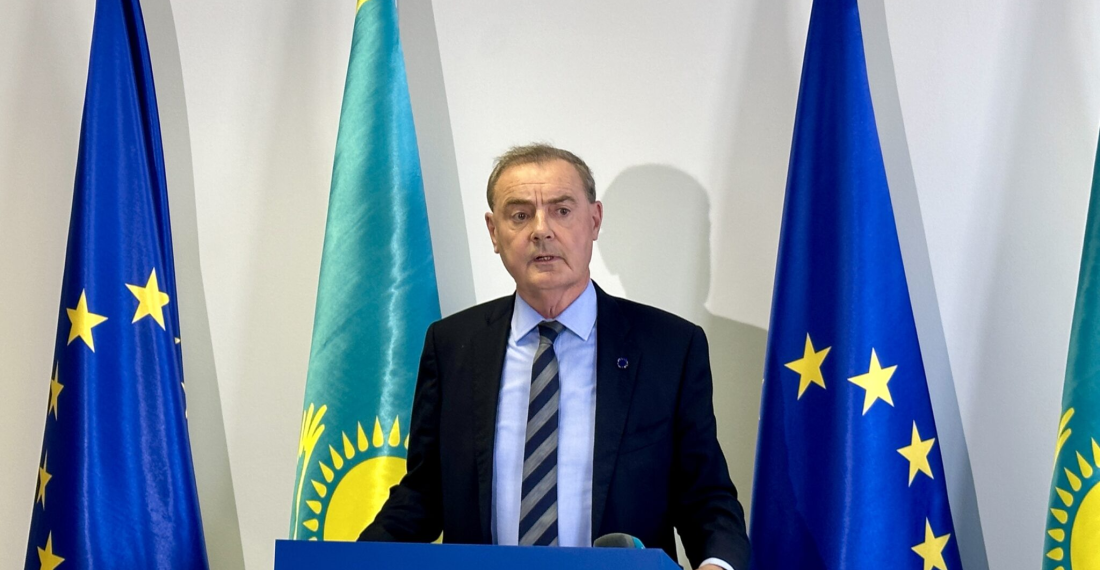The European Union and Kazakhstan have begun talks on how to prevent the re-export of sanctioned good to Russia, said International Special Envoy for the Implementation of EU Sanctions David O’Sullivan at a press conference during his visit to the Kazakh capital of Astana on 24 April.
Since the European Union began introducing significant sanctions on Russia over its full-scale invasion of Ukraine in February 2022, O’Sullivan said the EU has noticed "unusual trade flows" of certain manufacturing products suggesting that third countries may be complicit in helping Russia bypass sanctions.
"We have observed unusual trade flows from a range of countries where we see that the exports, which we were previously sending to Russia, appear now to be going to countries where we did not substantially export these products. And exports from these countries of those products to Russia have also risen extremely," said O’Sullivan.
This is particularly true of advanced technology products with a potential military or battlefield use, reports The Astana Times.
"Since Kazakhstan is a valued partner, and we want that to continue, to develop, and to grow, it is very important that we find a way of dealing with these issues around sanctions so that they do not become an irritant or an obstacle to deepening our future cooperation," said O’Sullivan.
"That is why we are today and tomorrow visiting with our British and U.S. colleagues in order to begin a dialogue with the Kazakh government and authorities to look more closely at the trade flows and details to identify if indeed there is an issue and if there is to discuss how we might address this," he added.






